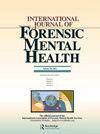Inequities in Forensic Mental Health in South Africa and Recommendations for Service Development
IF 0.9
4区 医学
Q3 CRIMINOLOGY & PENOLOGY
International Journal of Forensic Mental Health
Pub Date : 2023-08-16
DOI:10.1080/14999013.2023.2243856
引用次数: 1
Abstract
Abstract The roots of South Africa’s forensic mental health system are plagued by its colonial and apartheid legacy. Extensive forensic waitlists exist partly due to restrictive criminal justice legislation and an under-funded forensic mental health system, predicated largely on European norms and standards. There are several areas of concern in South Africa’s forensic mental health system, which may be viewed as inequitable to Black Africans and other marginalized groups. Black Africans are over-represented in the forensic mental health system, and many defendants are not fluent in English – the official language of the courts. The absence of competency restoration can result in extended detention in forensic hospitals. People with intellectual disabilities are disproportionately targeted for sexual assault, and face significant barriers in attempts to achieve justice. Further, the colonial legacy of the rebuttable presumption of doli incapax (children presumed incapable of forming criminal intent) can affect determinations of children’s criminal capacity. These issues warrant change, including introducing competency restoration, improving systems for testimony by sexual violence survivors with intellectual disabilities, reconsidering the rebuttable presumption in child justice matters, and using psychologists and outpatient evaluations to address the waitlists for forensic examinations. Comparisons are also made with US standards, challenges, and developments, especially in view of the authors’ knowledge of both systems and the common challenges facing them.南非法医心理健康方面的不公平现象及服务发展建议
南非法医心理健康系统的根源受到殖民和种族隔离遗产的困扰。大量的法医等候名单之所以存在,部分原因是限制性的刑事司法立法和主要以欧洲规范和标准为基础的法医精神卫生系统资金不足。在南非的法医精神卫生系统中有几个令人关切的领域,这可能被视为对非洲黑人和其他边缘群体不公平。在法医心理健康系统中,非洲黑人的比例过高,而且许多被告的英语并不流利——英语是法庭的官方语言。没有能力恢复可能导致在法医医院被长期拘留。智障人士不成比例地成为性侵犯的目标,在争取正义方面面临巨大障碍。此外,“无行为能力推定”(推定儿童无犯罪意图)这一可反驳推定的殖民遗产可能影响对儿童刑事行为能力的判定。这些问题需要改变,包括引入能力恢复,改进智力残疾的性暴力幸存者作证系统,重新考虑儿童司法事务中可反驳的推定,并利用心理学家和门诊评估来解决法医检查的等候名单。还与美国的标准、挑战和发展进行了比较,特别是考虑到作者对这两个系统的了解以及它们面临的共同挑战。
本文章由计算机程序翻译,如有差异,请以英文原文为准。
求助全文
约1分钟内获得全文
求助全文

 求助内容:
求助内容: 应助结果提醒方式:
应助结果提醒方式:


